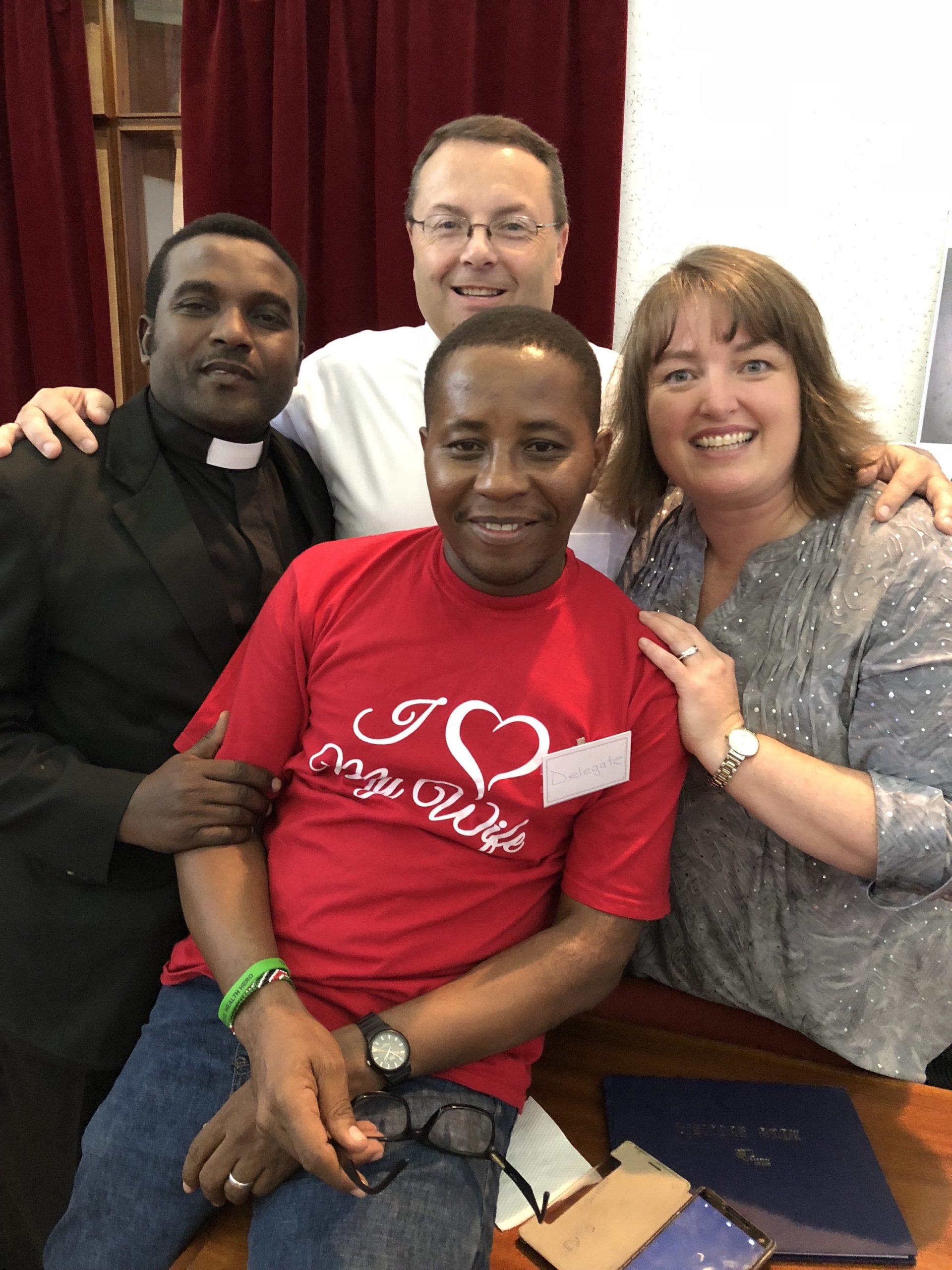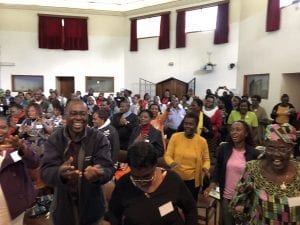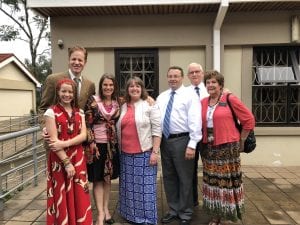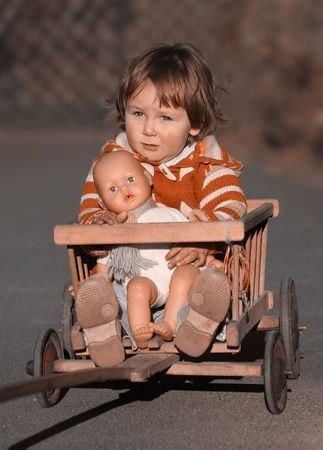In our modern times, patience is all but lost as our society encourages entitlement and instant gratification. Thank goodness for Christmas. Patience, one of the eternal virtues that great characters are built upon, is part of so many memories of Christmas past and present. We all know the stories of sneak peeking into Christmas gifts because it just seemed too hard to wait until Christmas day, only to destroy the fun on the real holiday because the surprise was ruined. The Christmas gift tradition is a beautifully magical reminder of the sweet joy that comes from waiting.
For centuries, prophets foretold of a Messiah that would come to save all people. The believers waited. There was no other choice. Patience, after all, is part of having faith and believing. Christmas day was the day of the prophecy, the day all the patience of believers paid off. As we count the days until Christmas on advent calendars and wrap gifts for future opening we are literally rehearsing the faith and patience practiced by believers leading up to the coming of our Lord over 2000 years ago.
War-Time Christmas
Sometimes Christmas day brings unexpected challenges and tears. However, those Christmas days have their own kind of magic too as they teach patience in a different way.
The love contained in Christmas has the power to turn tears of sorrow into tears of gratitude. 1942 was a tearful Christmas for many families who were missing their loved ones due to World War II. Farrell and Beverly Pond had been married for about a year when Farrell was drafted into military service. Soon after, Beverly found out that she was expecting their first child.
Farrell and Beverly were each looking ahead to an empty Christmas without their true love by their side. At the time Farrell left for military service, the two lovers promised to write to each other every single day that Farrell was away; and they did for three long years. This simple plan to stay connected, devoted to and focused on each other daily, kept them deeply loyal and committed to each other no matter how far apart they were. They built faith and hope in each other as they patiently wrote their letters each day.
Beverly: “Christmas is just another day for me this year, but I will surely be thinking of you, my darling, and my fingers just itch to open your package. That will be the only fun I’ll have.”
Farrell: “Honey, I’m not expecting anything for Christmas, but I’m getting a little bit anxious to open your box. You have surely got me wondering. No matter what it is I’ll be so happy to have it, because all your love came with it.”
His loyalty to his love and principles encouraged Farrell to agree to working barracks guard duty on Christmas Eve and Christmas day instead of going to town to drink and let loose like many of the other soldiers did that year.
Even though Farrell was unable to regularly attend church in the army, he was a very devout believer and felt that getting drunk on Christmas was not the right way to celebrate the birth of the Savior of the world. He wanted to have a calm Christmas and think about his “beloved eternal wife”, even though he didn’t get a chance to talk to her that day. Farrell said that he couldn’t even enjoy watching a show with other soldiers because he didn’t enjoy anything unless his beloved Beverly was seated next to him.
Farrell: “Honey, every time that I’ve been to a show, which is twice, I have had, and still have, a guilty feeling because I hate so much to do anything without you…It is more punishment for me to to go to a show without you, darling, than it ever would be staying in the barracks. I love you so much and nothing is enjoyable when you aren’t with me. I’d so much rather sit and write to you.”
He longed for his wife and married life, and did all that he could to live in a way that would please his wife and God.
Farrell: “The best relaxation and amusement for me is just to write to you, honey, and keep my bunk and shelf and floor clean, keep my clothes clean and neat and all my personal belongings kept as they should go. Because I know that you would want them in ‘spick and span’ order if I were home, and I don’t feel decent if they aren’t”
They each practiced patience by thinking of and encouraging each other instead of pitying themselves too much. They often testified to each other of the truths they held dear to remind each other, and themselves, that they could endure this trial with the hope of eternal happiness.
Beverly: “I hope you won’t let yourself get too homesick sweetheart, as I know it’s a terrible feeling. I think I’ve felt the same way many a night since you left. But all you can do is think of the glorious time when we’ll be together again, honey, and of our eternal and undying love.”
Farrell: “Tonight I can picture you right now. 8:00 pm M.W.T., darling, being out at Dad’s and ‘helping Sasie’ with the dinner…You can never imagine how I miss you tonight, our second Christmas since our being so happily married in the temple of our Heavenly Father. For the first time, I really dread Christmas to come too. I never dreamed I would want you so much, darling, as I do this Christmas and each day that passes. Honey, I love you so much that if I could be with you tonight I would give anything in the world.”
Christmas day was filled with tears for both of them.
Beverly: “Oh darling, I can’t tell you how I feel today. Everyone is so very good to me, and yet I can’t enjoy any of it without my beloved sweetheart. I keep wondering what kind of day you are having this Christmas, honey, and I’m certainly missing you. Every once-in-a-while the tears just won’t stay where they should, but I always feel better after my hankie gets them…Such an eternal love as ours can never die, my darling, and surly there has never been a love any greater than our love for each other. God, in all his goodness, will surely bring us together very soon, sweetheart.”
Farrell: “I received so much today that I was truly overwhelmed, darling. The agony of opening the packages and not being able to thank everyone face to face, most of all you my sweet darling wife, was almost unbearable…Your sweet card, darling, brought tears to my eyes because of those words ‘For there are memories we two alone can understand and there are ties that bind us close’…I want to show you each thing that I unwrapped and to kiss you and thank you so much for what you have done for me and what you and your love means to me, darling. More than a few tears have been shed by your eternally loving ‘cubby,’ darling, this Christmas, honey.”
However, behind the tears was patience and hope for better times to come and gratitude for blessings that they noticed in their lives despite their circumstances. Farrell even noticed that their relationship had a chance of improving under the circumstances since they were focusing so much on each other.
Farrell: “Under the circumstances, darling, may the year bring you happiness and joy, and my prayer is that we will be reunited in the early months of the year. We should be doubly happy and thankful because of the coming of our baby in a few months…We have truly been blessed in spite of the present world conditions, honey. Our love has grown so much and seems to have grown more since my being in the army, darling, and more because of the blessed event to come to us soon. I hope, my darling, that you had a Merry Christmas. I miss you so much, Beverly dear, and Christmas this year won’t have a joy or happiness for me or you either that we had had on other Christmases that we have been together. Each of the years at Christmas has shown how our love has multiplied for each other and this year is another year only of greater love and affection than all the others put together, darling. Life is so empty and meaningless when I’m not with you, because you are so sweet and loving to me…”
Beverly: “The Lord will hear and answer our prayers I’m sure, darling, and may he always bless you ‘till we are together again…”
Patience is a hopeful thing that ultimately leads to more gratitude and inner peace.
Beverly: “I certainly pray that it won’t be another year before you are home and there’s ‘peace on earth, goodwill towards men.”
Farrell: “Happy New Year to the sweetest girl that has ever breathed the breath of life, my wonderful, darling, wife. God bless and be with you, Beverly dear, and Jr. too for your eternally loving husband, Farrell.”
Farrell and Beverly survived the years apart during the war and went on to be madly in love throughout their married life. They focused on enduring the war and each Christmas apart with patience and hope and after the war they were blessed with a truly happy, one-of-a-kind marriage. As I read their letters each week with my dad, their son, the lesson of patience and long-suffering that Christmas symbolizes has been engraved upon my heart. Patience is a rare virtue in these selfish times, but those who possess it, are truly blessed with happiness and hope during the hardest of times.
To improve your marriage and in increase your patience at home come to this online event.














